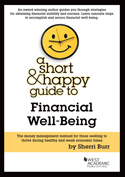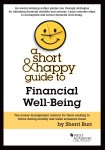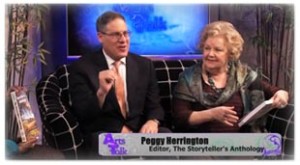by Sherri Burr
Tony Hillerman, the author who exposed the Navajo way to millions of people, passed away on October 26, 2008. After moving to New Mexico in 1988, I mentioned to a University of New Mexico colleague that I was looking for a writer to speak to my class the following spring. She recommended I read The Ghostway and The Dark Wind. I became a fan and wrote Tony.
For a humble person who reveled in his Oklahoma farm boy roots, spending time with lawyers and lawyer-wannabes was not Tony’s idea of fun. But he was also a teacher at heart and always willing to share, even with not-so-modest attorney types.
After publishing three books in 2004, I was invited to join First Fridays, a group that Tony and several of his writing pals started in the 1960s to share knowledge about the publishing industry. One morning a couple of years ago, I received an email seeking someone to drive Tony, now in his 80s, to the next meeting. I immediately volunteered.
Driving Tony Hillerman was a gift. Even as he struggled with health infirmities, he quipped, “Don’t get old.” Here are a few other tips from a great writing mind:
Tip 1: Take Time to Observe the Clouds
“Look at those clouds,” Tony said as we walked to my car. “Don’t they remind you of a flock of geese?” Other times, he would notice horses in stalls or dogs wandering the roads. His books are filled with elegantly described settings. I realized that he could write so vividly about New Mexico and Arizona because he was constantly observing the environment.
Tip 2: Be Generous with Your Writing Earnings
On one occasion, we pulled up at a stop sign as a panhandler approached with a sign. Tony took out his wallet and handed the man $10. Wow, I thought, how generous. At that First Friday meeting, Tony said he had recently opened a letter and a $100 bill fell out. The woman wrote of having borrowed his books from the library all these years and realized that he was probably missing some royalties. Lesson learned: generosity is returned many fold.
Tip 3: Keep at It
Tony’s debut novel The Blessing Way received 101 rejection slips before being picked up by Harper & Row in 1980. Along the way, agents wanted him to change the location of his books from the Navajo reservation to Santa Fe and to alter Joe Leaphorn’s identity. He stuck to the truth of his stories, and you should, too. After bemoaning the dozen rejections one of my manuscripts received, I realize I have to send it out 89 more times.
Keep the faith and keep writing. Tony did and we are grateful that he lived.
 Sherri Burr is the Regents’ Professor of Law at the University of New Mexico School of Law where she teaches Entertainment Law, Intellectual Property Law, and Art Law. A graduate of Mount Holyoke College, Princeton University, and the Yale Law School, she has authored or co-authored 20 books, including A Short and Happy Guide to Financial Well-Being (West Academic, 2014). Sherri is also a long-time member of SouthWest Writers and a regular contributor to the organization’s newsletter SouthWest Sage.
Sherri Burr is the Regents’ Professor of Law at the University of New Mexico School of Law where she teaches Entertainment Law, Intellectual Property Law, and Art Law. A graduate of Mount Holyoke College, Princeton University, and the Yale Law School, she has authored or co-authored 20 books, including A Short and Happy Guide to Financial Well-Being (West Academic, 2014). Sherri is also a long-time member of SouthWest Writers and a regular contributor to the organization’s newsletter SouthWest Sage.
This article was originally published in the January 2009 issue of SouthWest Sage and is reprinted here by permission of the author.




